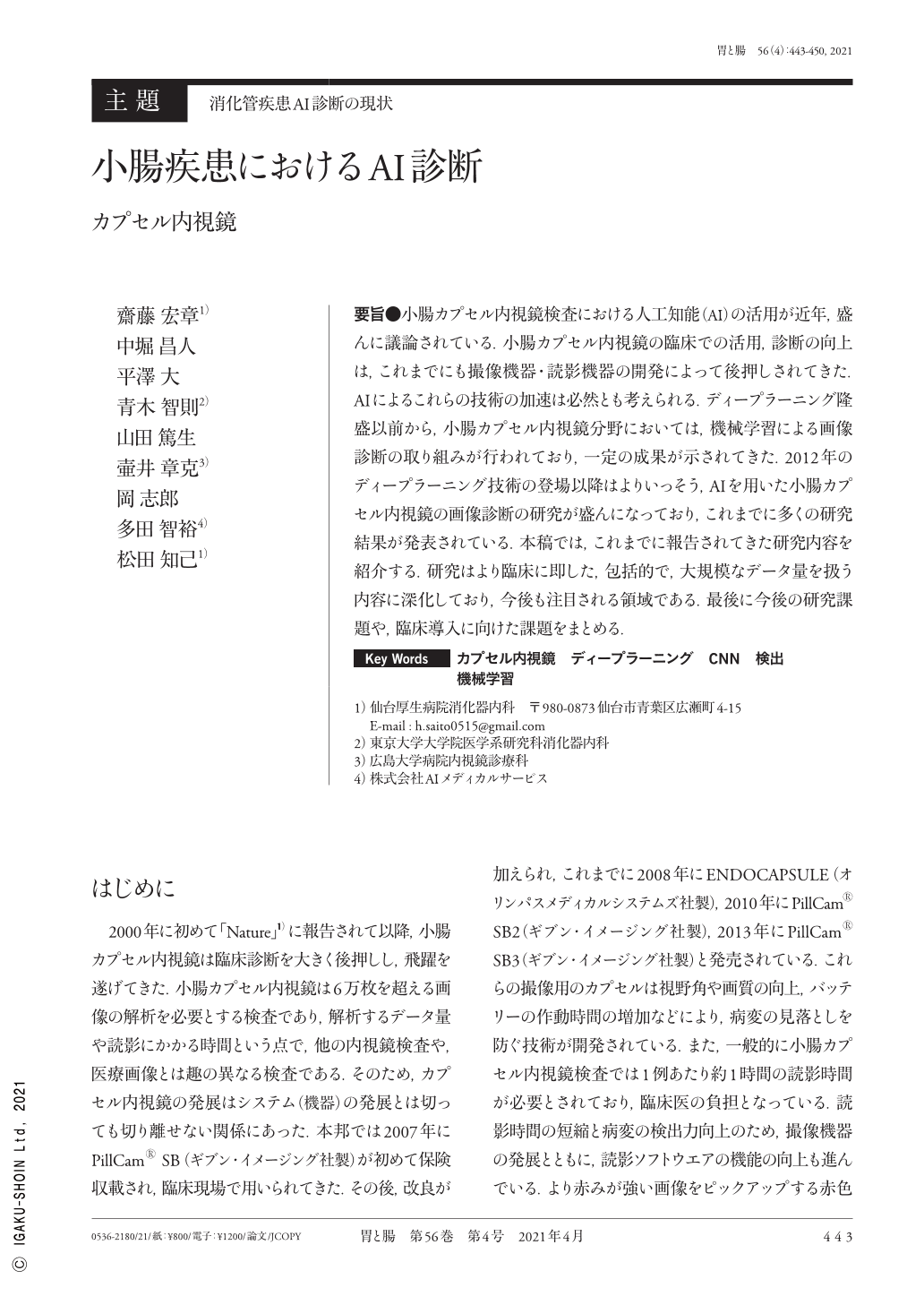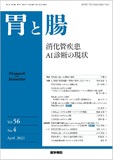Japanese
English
- 有料閲覧
- Abstract 文献概要
- 1ページ目 Look Inside
- 参考文献 Reference
- サイト内被引用 Cited by
要旨●小腸カプセル内視鏡検査における人工知能(AI)の活用が近年,盛んに議論されている.小腸カプセル内視鏡の臨床での活用,診断の向上は,これまでにも撮像機器・読影機器の開発によって後押しされてきた.AIによるこれらの技術の加速は必然とも考えられる.ディープラーニング隆盛以前から,小腸カプセル内視鏡分野においては,機械学習による画像診断の取り組みが行われており,一定の成果が示されてきた.2012年のディープラーニング技術の登場以降はよりいっそう,AIを用いた小腸カプセル内視鏡の画像診断の研究が盛んになっており,これまでに多くの研究結果が発表されている.本稿では,これまでに報告されてきた研究内容を紹介する.研究はより臨床に即した,包括的で,大規模なデータ量を扱う内容に深化しており,今後も注目される領域である.最後に今後の研究課題や,臨床導入に向けた課題をまとめる.
The use of AI(artificial intelligence)in small bowel capsule endoscopy has been widely discussed. Developments of imaging technology and reading equipment have been the factors responsible for the clinical application of small bowel capsule endoscopy thereby improving its diagnosis. Therefore, improving these technologies by AI can be considered as inevitable. Even before the emergence of deep learning, efforts had been made to use machine learning in the field of small bowel capsule endoscopy for image diagnosis. Since the advent of deep learning technology in 2012, research on the diagnostic imaging of small bowel capsule endoscopy using AI has gained popularity, and several studies have reported it till date. In this paper, we present an up-to-date review of the research that has been reported in this field. Research with increased clinical relevance and comprehension has been emerging recently, and is dealing with large amounts of data. It is anticipated that this is an area that will continue to attract attention. Finally, we summarize future research topics and issues related to clinical implementation.

Copyright © 2021, Igaku-Shoin Ltd. All rights reserved.


